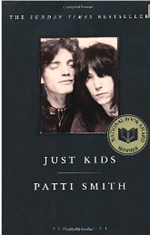Pauline Black, the lead singer of 2-Tone band The Selecter, was born in 1953 to an Anglo-Jewish mother and Nigerian father and was adopted as a baby by a white working-class couple from Essex, who refused to acknowledge she was black. However, by adolescence she was determined to define herself as society saw her and changed her surname to Black by deed poll when she was in her twenties.
During her early career with The Selecter, Black toured alongside fellow 2-Tone bands The Specials and Madness, determined to spread a multicultural musical message through the band's fusion of ska, reggae and punk, whilst simultaneously dealing with band politics and racism – she was once almost shot by Texan rednecks. The Selecter disbanded in 1982 (although it was to reform 10 years later) and Black went on to pursue a career as a television presenter, most notably for Channel 4’s Black on Black, the first television programme created specifically for a black audience, and an actor – in 1991 she won the Time Out award for Best Actress for her portrayal of Billie Holiday in the Tricycle Theatre’s production of All or Nothing at All.
Black is currently touring with The Selecter and her autobiography, Black by Design: A 2-Tone Memoir was published in July by Serpent's Tail.
What are you reading at the moment?
I’ve just finished reading Patti Smith’s memoir Just Kids. A few months ago I was chatting to Viv Albertine, one-time guitarist with The Slits, at a party, who said that she’d read it and hadn’t liked it very much. For some unknown reason, if anybody says that they don’t like a book, I always feel duty bound to read it. Patti Smith’s poetic exploration of the youthful relationship she enjoyed with the late photographer Robert Mapplethorpe, long before either became famous, is so profoundly moving that I have just downloaded all her albums too, so that I can revisit her musical legacy with new insight.
[Excerpt from Just Kids by Patti Smith (Bloomsbury)]
 Everything distracted me, but most of all myself. Robert would come over to my side of our loft and scold me. Without his arranging hand, I lived in a state of heightened chaos. I set the typewriter on an orange crate. The floor was littered with pages of onionskin filled with half-written songs, meditations on the death of Mayakovsky, and ruminations about Bob Dylan. The room was strewn with records to review. The wall was tacked with my heroes but my efforts seemed less than heroic. I sat on the floor and tried to write and chopped my hair instead. The things I thought would happen didn’t. Things I never anticipated unfolded.
Everything distracted me, but most of all myself. Robert would come over to my side of our loft and scold me. Without his arranging hand, I lived in a state of heightened chaos. I set the typewriter on an orange crate. The floor was littered with pages of onionskin filled with half-written songs, meditations on the death of Mayakovsky, and ruminations about Bob Dylan. The room was strewn with records to review. The wall was tacked with my heroes but my efforts seemed less than heroic. I sat on the floor and tried to write and chopped my hair instead. The things I thought would happen didn’t. Things I never anticipated unfolded.
I went home to visit my family. I had a lot of thinking to do about what direction I should be taking. I wondered if I was doing the right work. Was it all frivolity? It was the nagging sense of guilt I experienced performing on the night the Kent State students were shot. I wanted to be an artist but I wanted my work to matter.
My family sat round the table. My father read us Plato. My mother made meatball sandwiches. As always, there was a sense of camaraderie at the family table. In the midst of it I received an unexpected call from Tinkerbelle. She told me abruptly that Robert and David were having an affair. “They’re together right now,” she said, somewhat triumphantly. I simply told her the call was unnecessary, and that I already knew.
I felt stunned as I hung up the phone, yet I had to wonder if she merely put into words what I had myself divined. I wasn’t sure why she called me. It wasn’t as if she was doing me a favour. We weren’t that close. I wondered if she was being mean-spirited, or merely a tattletale. There was the possibility she wasn’t telling the truth. On the bus ride home, I made the decision to say nothing and give Robert the opportunity to tell me on his own terms.
What is a good read that you'd recommend?
Race of a Lifetime is a fly-on-the-wall journalistic read from two acclaimed political reporters, John Heilemann and Mark Halperin, about the behind the scenes tousles between Barack Obama and Hillary Clinton during the US presidential election in 2008. As a fan of Barack Obama, I was immediately drawn to the double meaning of the title. I adore the fact that the most powerful man in the world at the moment is a mixed-race Afro-American. I hope he gets a second term next year.
[Excerpt from Race of a Lifetime: How Obama Won the White House by John Heilemann and Mark Halperin (Pengiun)]
 The Obamans had bet everything on Iowa. If their man lost, he was probably toast – and certainly so if he was placed behind Clinton. By his campaign’s own rigorous projections, an Obama victory would require a turnout at least 50 per cent higher than the all-time Iowa record. It would require a stampede of the college kids and other first-time caucus-goers they had been recruiting like mad. Would the kids show up? Obama’s advisers had high hopes but no real sense of confidence. Many of them were convinced that John Edwards would wind up in first place. Others fretted that Clinton would win. The Campaign’s final internal pre-caucus poll had Obama finishing third.
The Obamans had bet everything on Iowa. If their man lost, he was probably toast – and certainly so if he was placed behind Clinton. By his campaign’s own rigorous projections, an Obama victory would require a turnout at least 50 per cent higher than the all-time Iowa record. It would require a stampede of the college kids and other first-time caucus-goers they had been recruiting like mad. Would the kids show up? Obama’s advisers had high hopes but no real sense of confidence. Many of them were convinced that John Edwards would wind up in first place. Others fretted that Clinton would win. The Campaign’s final internal pre-caucus poll had Obama finishing third.
Anxiety among Obama’s brain trust rarely seemed to affect the candidate, but as caucus day morphed into night, his façade of nonchalance began to crack. On a visit to a suburban caucus site with Plouffe and Valerie Jarrett – a tough Chicago businesswoman and politico who was a dear friend to Obama and his wife, Michelle – he saw a swarm of voters in Obama T-shirts and got teary-eyed in the car. Outside the restaurant where he planned to have dinner with a couple of dozen friends, Obama was fiending for information in a way his aides had seldom seen before. Overhearing Plouffe and another staffer kibitzing about turnout, he doubled back and peppered them with queries: “What are you guys talking about?” “What did you say?” "What are you hearing?”
Obama sat down with Michelle in the wood-panelled dining room of Fleming’s Prime Steakhouse in West Des Moines, Plouffe had warned him to ignore the early returns, which were likely to be skewed against him. But not long into the meal, Blackberry’s around the table buzzed with emails that told a different story. Turnout was massive. Unprecedented. Beyond anyone’s wildest dreams. Obama was leading in Polk County. He was leading in Cedar Rapids. Then a phone call came from Plouffe. Obama listened, hung up, and apologised to his friends. “I think I gotta go get ready to give my victory speech,” he said.
- Find Race of a Lifetime: How Obama Won the White House by John Heilemann and Mark Halperin on Amazon
What are you planning to read next?
I am planning to re-read We Need to Talk About Kevin by Lionel Shriver, before the book’s movie release in the autumn. I deliberately chose not to have children, like many women of my generation, and the nightmarish scenario depicted in this book gives an original and thought-provoking voice to some of the unspoken fears I felt about motherhood. The movie stars my favourite actress, Tilda Swinton, so I would like to try her out in my mind’s eye as I read the story anew.
[Excerpt from We Need to Talk About Kevin by Lionel Shriver (Serpent’s Tail Classics)]
 It’s still difficult for me to venture into public. You would think, in a country that so famously has “no sense of history”, as Europeans claim, that I might cash in on America’s famous amnesia. No such luck. No one in this “community” shows any signs of forgetting, after a year and eight months – to the day. So I have to steel myself when provisions run low. Oh, for the clerks at the 7-Eleven on Hopewell Street my novelty has worn off, and I can pick up a quart of milk without glares. But our regular Grand Union remains a gauntlet.
It’s still difficult for me to venture into public. You would think, in a country that so famously has “no sense of history”, as Europeans claim, that I might cash in on America’s famous amnesia. No such luck. No one in this “community” shows any signs of forgetting, after a year and eight months – to the day. So I have to steel myself when provisions run low. Oh, for the clerks at the 7-Eleven on Hopewell Street my novelty has worn off, and I can pick up a quart of milk without glares. But our regular Grand Union remains a gauntlet.
I always feel furtive there. To compensate, I force my back straight, my shoulders square. I see now what they mean by “holding your head high”, and I am sometimes surprised by how much interior transformation a ramrod posture can afford. When I stand physically proud, I feel a small measure less mortified.
Debating medium eggs or large, I glanced toward the yogurts. A few feet away a fellow shopper’s frazzled black hair went white at the roots for a good inch, while its curl held only at the ends: an old permanent grown out. Her lavender top and matching skirt may have once been stylish, but now the blouse bound under the arms and the peplum served to emphasise heavy hips. The outfit needed pressing, and the padded shoulders bore the faint stripe of fading from a wire hanger. Something from the nether regions of the closet, I concluded, what you reach for when everything else is filthy or on the floor. As the woman’s head tilted toward the processed cheese, I caught the crease of a double chin.
Don’t try to guess; you’d never recognise her from that portrait. She was once so neurotically svelte, sharply cornered, and glossy as if commercially gift wrapped. Though it may be more romantic to picture the bereaved as gaunt, I imagine you can grieve as efficiently with chocolates as with tap water. Besides, there are women who keep themselves sleek and smartly turned out less to please a spouse than to keep up with a daughter, and, thanks to us, she lacks that incentive these days.















Add comment